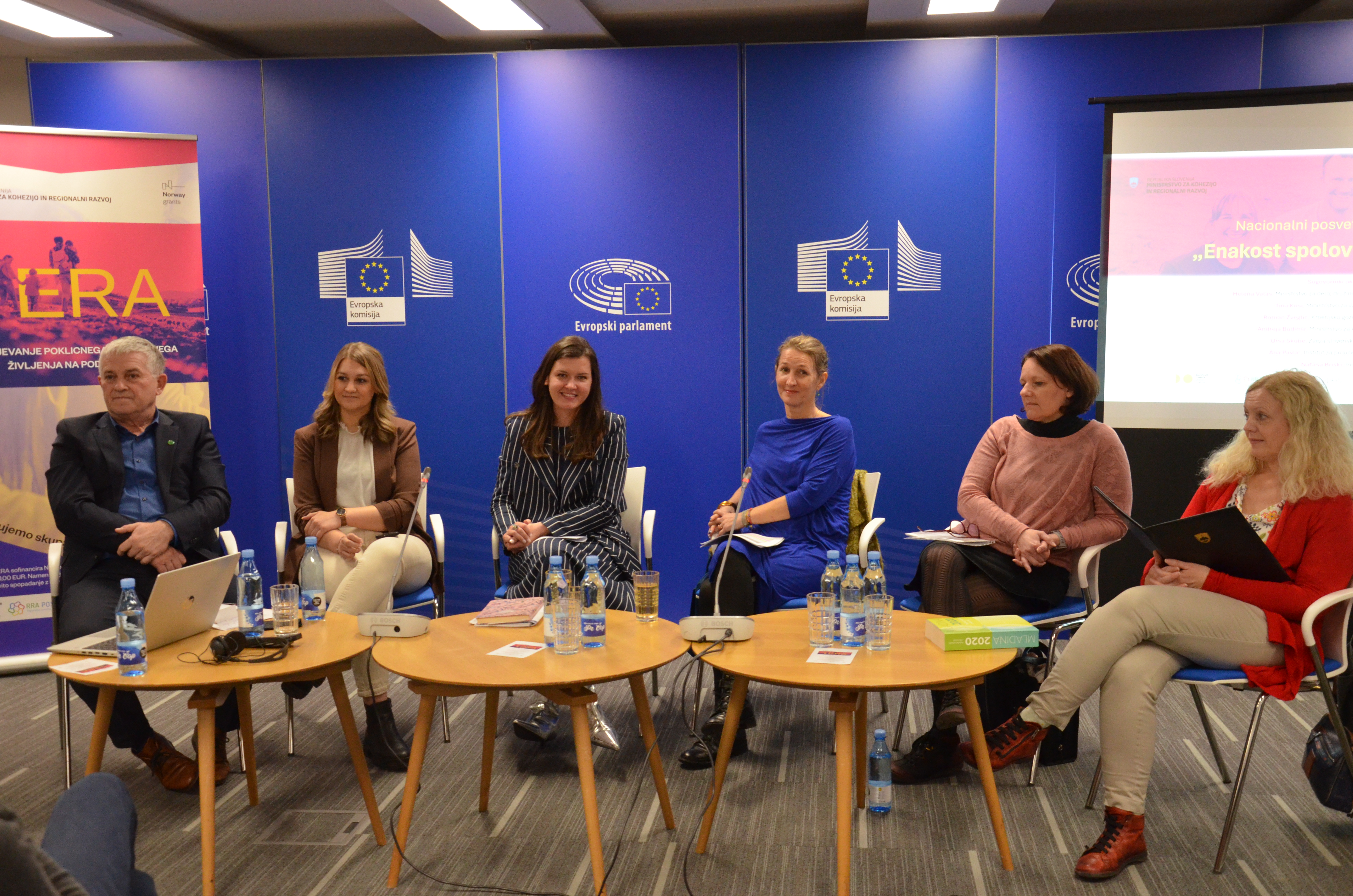
7 March 2024 – The closing event of the project Development of a Comprehensive Approach for Enhancing Work-life Balance of Professional and Private Life in Rural Areas, Based on the Establishment of Multi-Stakeholder Regional Systems and Local Partnerships TERA concluded with a panel discussion on 7 March 2024. Hosted at the House of the European Union in Ljubljana and supported by the Norway Grants in Slovenia, the event featured both a press conference and a panel discussion focused on “Gender Equality in Rural Areas”.
The event commenced at 10:00 with a press conference where TERA project partners showcased a presentation video introducing all participating entities. The video highlighted the project’s efforts in empowering rural communities, addressing challenges, and balancing work and personal life. It also outlined the project’s activities, starting with a national survey on gender equality in rural regions. This survey identified key obstacles hindering rural residents from achieving a work-life balance and worsening gender inequality. Notable factors contributing to gender disparity included traditional gender roles, women’s economic dependence on their partners, indifference to violence, and inadequate public infrastructure in rural areas.
As part of the project’s initiatives, two multi-stakeholder local committees were formed, one in the Pomurje region and another in the Posavje region, featuring representatives from various public institutions and organisations. These committees aimed to implement developmental measures to enhance work-life balance opportunities for rural employees. More details about these measures can be found here.
A pivotal aspect of the project was its education and awareness-raising programme, conducted in the field and crafted based on research findings and consultations with stakeholders. This programme involved workshops covering six distinct themes: gender roles, gender-based violence, work-life balance, intergenerational coexistence, and farmer rights and social security. These workshops were interactive, featuring expert lectures followed by group discussions to devise solutions to pertinent challenges. Furthermore, mentors provided ongoing support to selected participants, aiding them in navigating project-related obstacles.
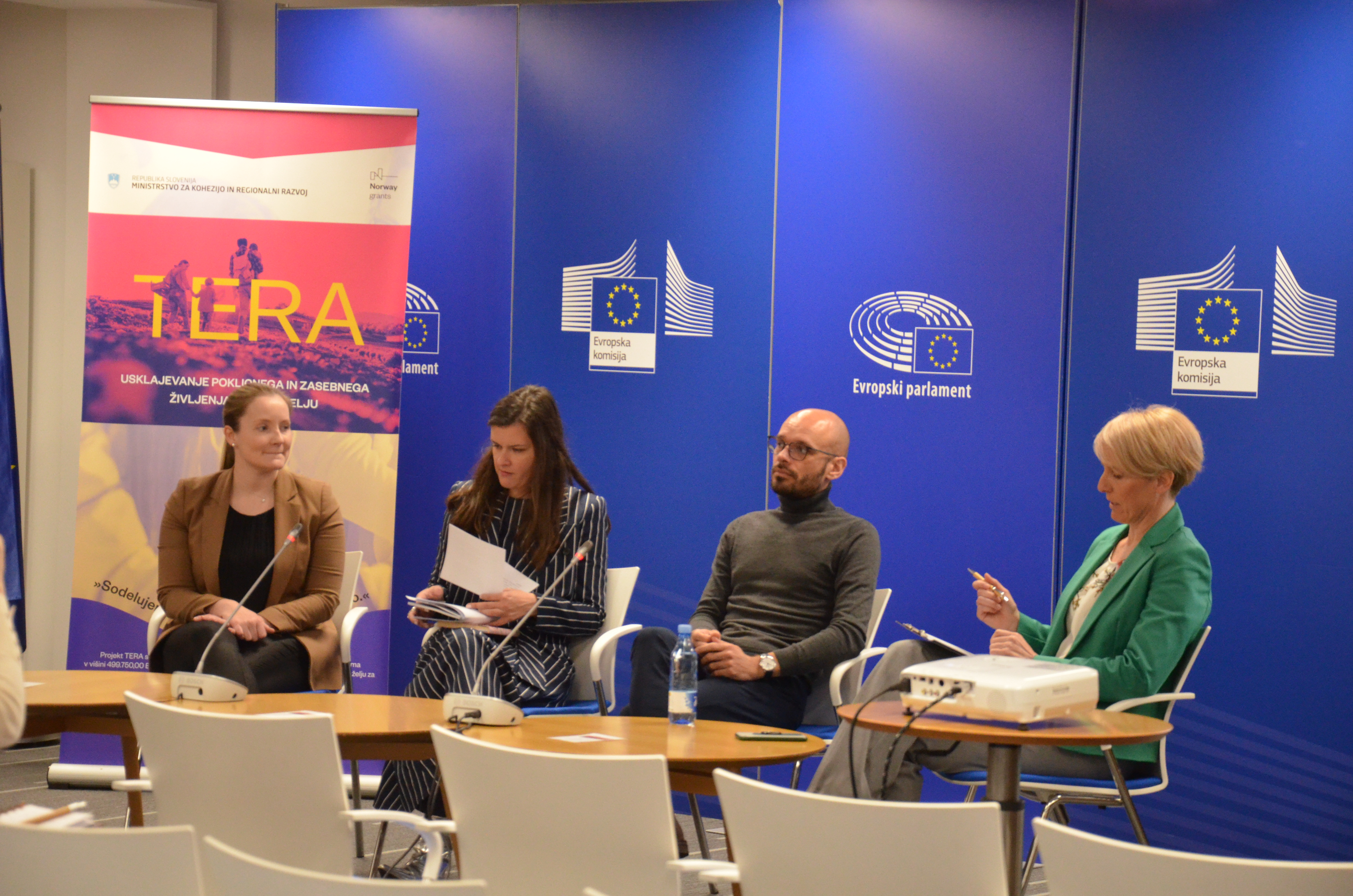
After the video presentation, Tadej Pirc, PhD from the Development Centre Murska Sobota emphasised the project’s integrated approach and interdisciplinary collaboration. Ana Pavlič from the Gender Equality Research Institute Maribor (IPES) elaborated on the survey findings, which encompassed insights from 707 rural residents, underlining the imperative to address gender equality issues beyond legal frameworks. You can find detailed results of the survey here. Anja Kastelic, representing the Slovenian Rural Youth Association, underscored the necessity of amplifying rural voices and addressing disparities in social insurance and access to information among rural populations.
At 11:00, the second part of the event commenced with a panel discussion focusing on “Gender Equality in Rural Areas“. Tadej Pirc, PhD delivered the opening speech, expressing gratitude to the project partners and all stakeholders for their contributions to the project’s implementation. Afterwards he introduced the project, highlighting its diverse approaches and its comprehensive perspective on the issues. He emphasised the pivotal role of gender equality in achieving work-life balance and advocated for a proactive approach to identifying and addressing inequalities, particularly to empower vulnerable groups.
Afterwards, Her Excellency Trina Skymoen, Ambassador of the Kingdom of Norway, addressed the audience. She underscored the importance of equal opportunities for men and women to participate in society and stressed the significance of women’s involvement across all sectors. Ambassador Skymoen noted the gradual improvement in gender equality in both Norway and Slovenia, attributing it not only to economic factors but also to the active implementation of gender equality policies, particularly by Norwegian women since 1970.
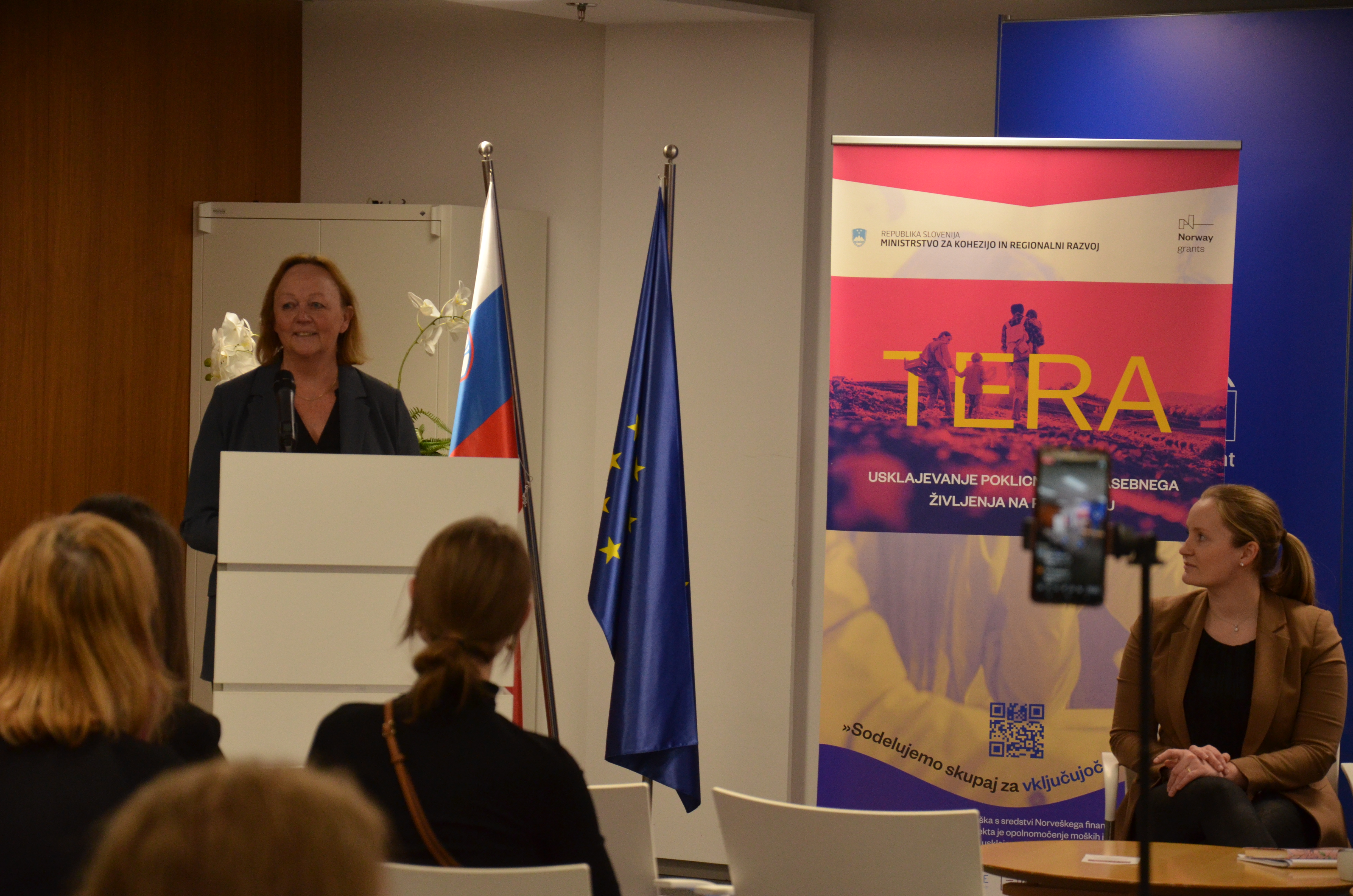
Jadranka Plut, representing the Programme Operator of the Education, Scholarships, Apprenticeship and Youth Entrepreneurship Programme, Ministry of Cohesion and Regional Development, warmly welcomed the attendees of the closing event. She highlighted the Norwegian Financial Mechanism as a crucial instrument for fostering cooperation and enhancing relations between Norway and Slovenia. She emphasised the importance of researches and projects like TERA in providing valuable insights that inform policy decisions and systemic regulations in the realm of gender equality.
The national panel discussion, “Gender Equality in Rural Areas”, moderated by Nataša Briški, featured notable attendees including Helena Valas from the Ministry of Labour, Family, Social Affairs and Equal Opportunities, Tina Kosi from the Ministry of Education, Roman Žveglič from the Chamber of Agriculture and Forestry of Slovenia, Urša Skube from the Slovenian Rural Youth Association, and Ana Pavlič from the Gender Equality Research Institute Maribor (IPES).
The discussion was initiated by project partners, emphasising the distinctive challenges encountered by rural communities and underscoring the imperative need to address inequality in all settings. Helena Valas delved deeper into the lack of active childcare facilities in remote rural areas, worsening the struggle for work-life balance, a burden mostly carried by women.
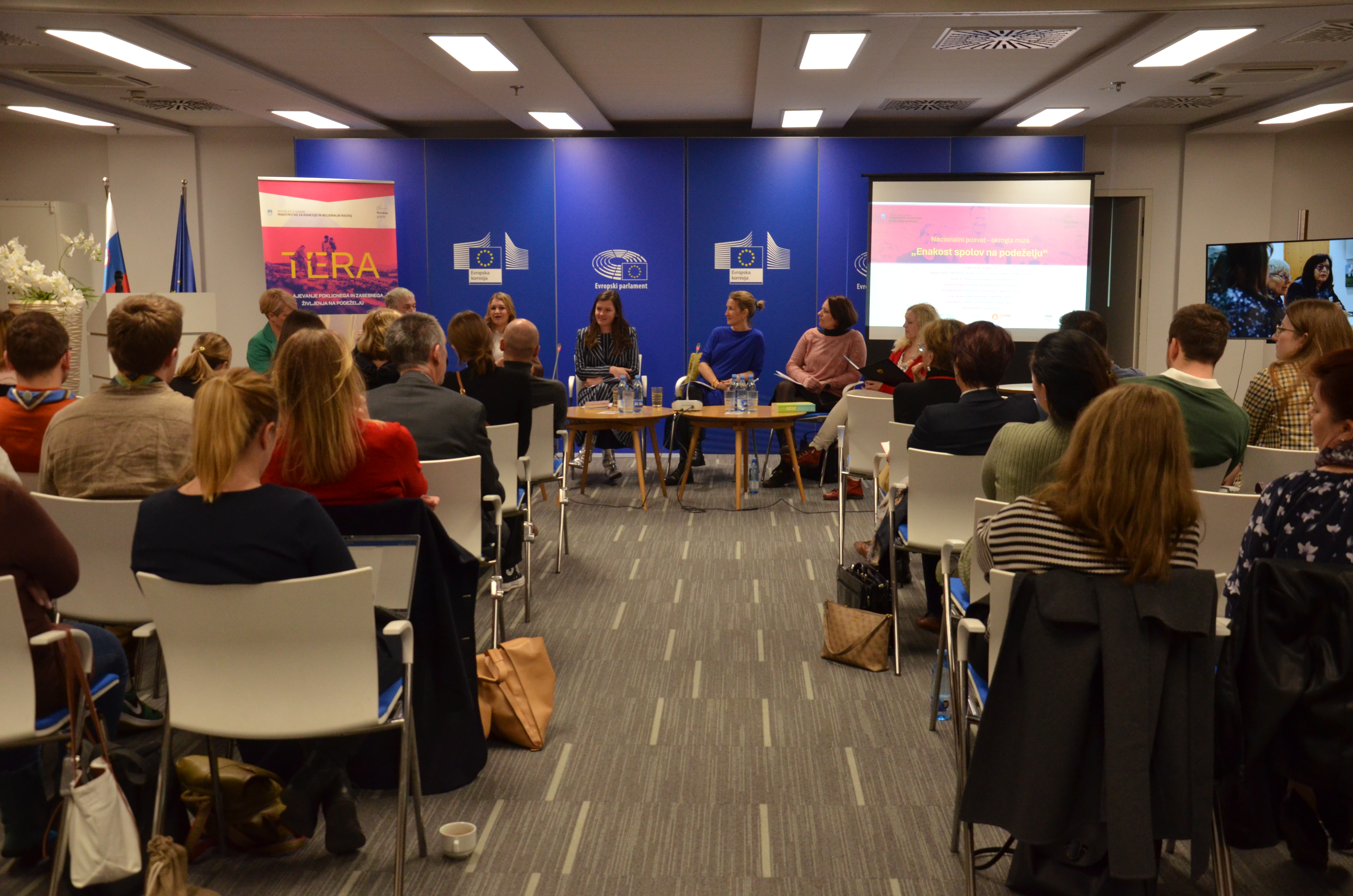
The representative of the Ministry of Cohesion and Regional Development, Andreja Budimir, pointed out at the panel discussion that such projects are crucial for identifying the challenges and problems in rural areas, as they allow to shed light on the issues.
During the open discussion, speakers underscored the prevalence of violence against women globally, with femicide witnessing a worrying increase in Slovenia. They emphasised the need for improved communication, nurturing relationships, and creating a safe space for sharing opinions. The project partners highlighted the unexpected responses from workshop participants, revealing a prevalent belief that rural individuals perceive limited influence in shaping systemic solutions and processes.
The central question raised was how to move the TERA project forward. The project partners unanimously agreed that their work had only just begun. They envisioned their initiatives evolving into strategic orientations, public legislation, and advocacy efforts that would incorporate a gender perspective into the discourse on rural areas. Recognizing the invaluable insights from those directly affected, they stressed the need for broader participation and consensus to address the multifaceted issues at hand.
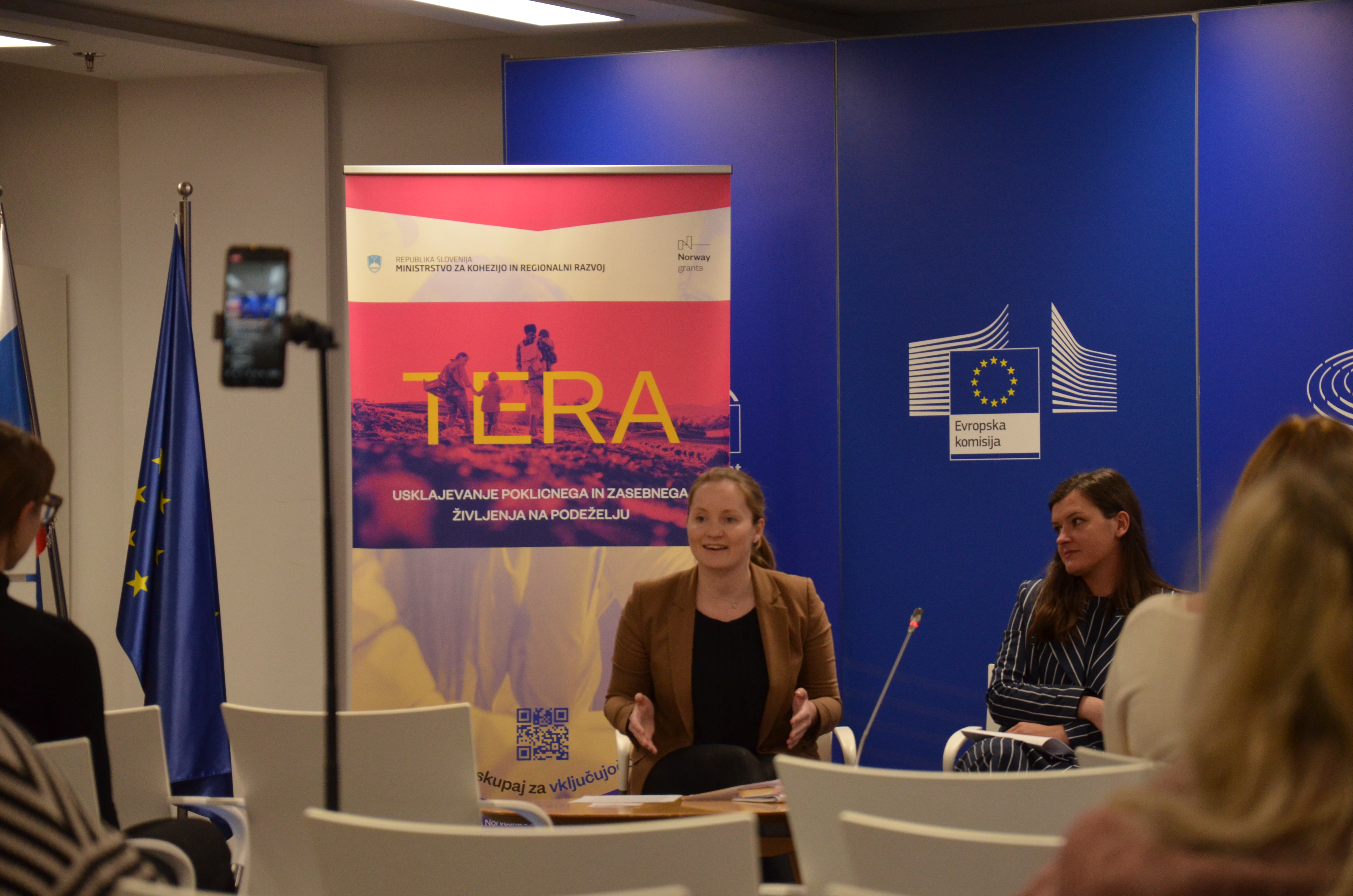
The project promoter of the project TERA is the Development Centre Murska Sobota, the project is also co-created by the Regional Development Agency Posavje, the Gender Equality Research Insitute Maribor (IPES), the Slovenian Rural Youth Association, the Centre for the Development of Sustainable Society, and the Norwegian partner, Inland Norway University of Applied Sciences.
Source: Project TERA